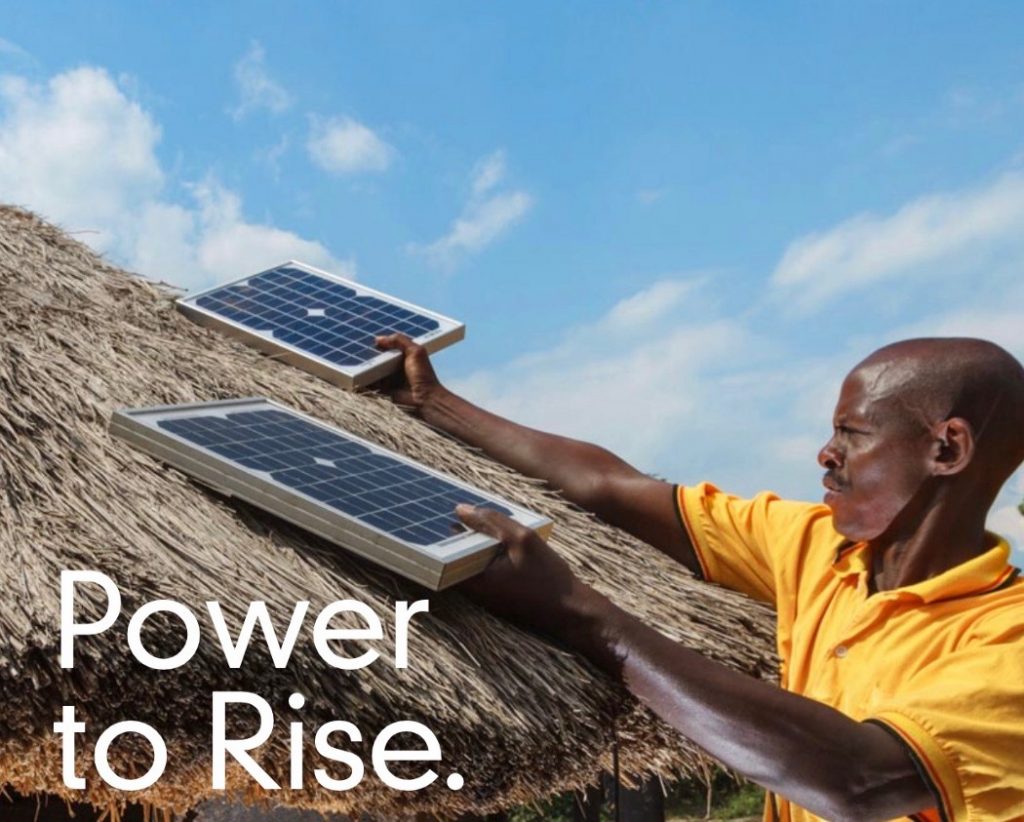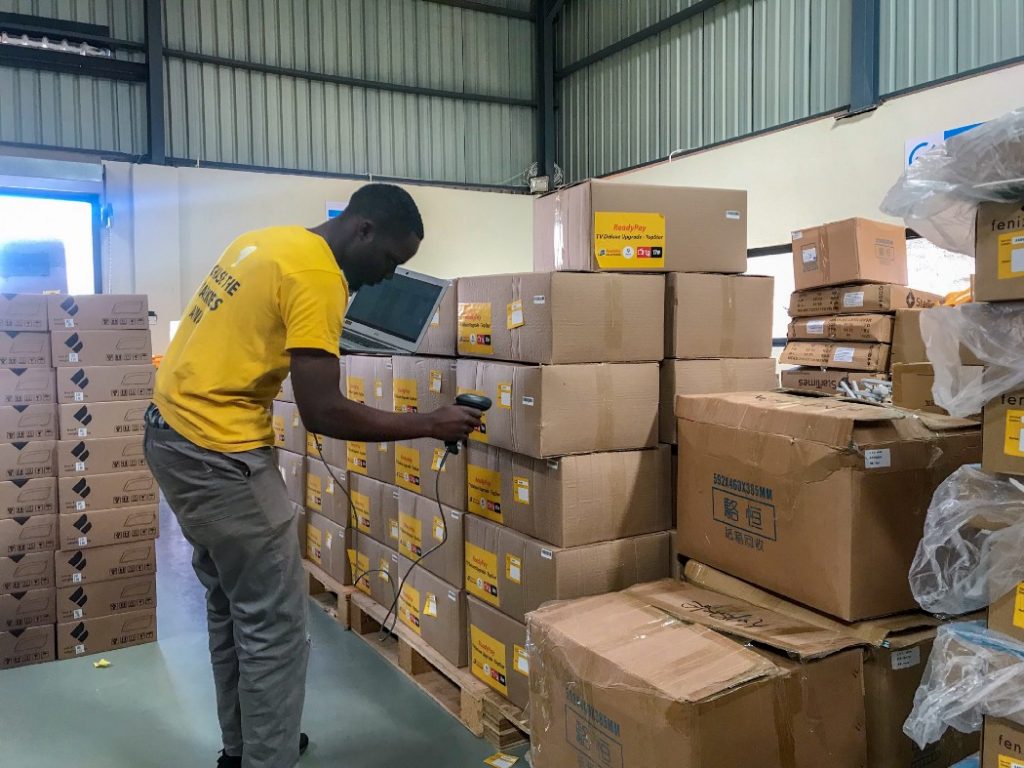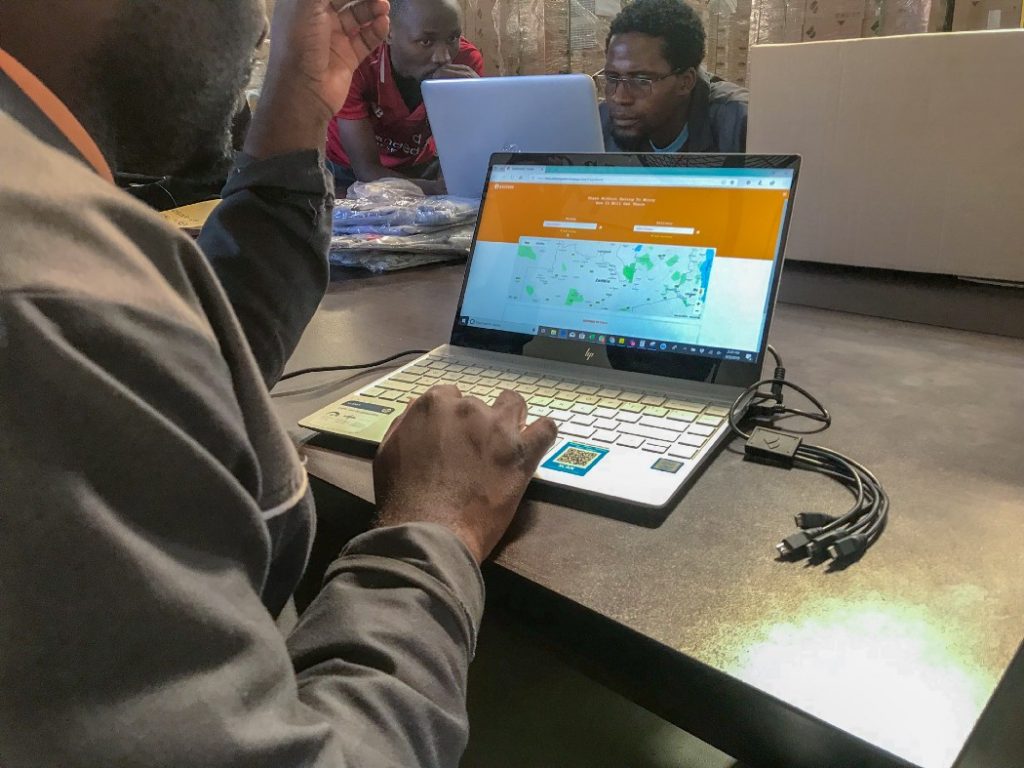Last-mile delivery is often one of the most complicated steps in the logistics process, particularly for hardware companies with potential or actual customers in remote areas of emerging markets. This layer of complexity, which also exists in the solar energy supply chain, drove two GSMA grantees, Fenix International and Musanga Logistics, to join forces to deploy solar kits in remote areas of Zambia. Both companies are already collaborating with MTN Zambia.
Back in February 2014, Fenix International (see our case study) received a grant from the GSMA Mobile for Development (M4D) Utilities Innovation Fund in Uganda to scale its pay-as-you-go (PAYG) system, ReadyPay Power, to enable solar-powered lighting and phone charging. During the period of the grant, Fenix tested the ReadyPay home and business products and rolled out the solution through joint marketing and distribution with MTN Uganda. Fenix has now grown into a pan-African energy provider serving over 350,000 households across three markets (Côte d’Ivoire, Uganda and Zambia) still in close partnership with MTN. Musanga Logistics (see our case study) received a grant from the GSMA Ecosystem Accelerator Innovation Fund in February 2018 to expand its operations and platform in three cities across Zambia. During the grant period, Musanga Logistics secured a mobile money integration partnership with MTN Zambia, a move that helped simplify Musanga’s payment collection process.
The Q&A below, initially published on Musanga Logistics’ Medium, documents the conversation between Wakunyambo Mwanamuke (Communications Director, Musanga Logistics) and Brown Musepa (Supervisor, Fenix International) as they discuss this mutually beneficial partnership.
For the most part, rural Zambian households have always relied on dangerous, polluting kerosene lamps. However, recently solar power has been sold as the obvious solution for the 600 million Africans who live without electricity. We sat down with Brown Musepa, the Operations manager at Fenix International – an organisation that has embarked on providing off the grid electricity to rural areas – to find out how they are running Fenix’s Zambian operations.
1. Tell me about Fenix?
Fenix is a company that designs, manufactures and distributes ReadyPay Solar kits. This is a mobile payment-enabled solar panel and smart battery system, which empowers off-grid residents with convenient, affordable access to clean electricity.
2. Why does Fenix Exist?
According to Fenix, an estimated 15 million Zambians live without access to the electrical grid, representing 80% of the total population and 95 percent of rural residents. In a move to accelerate its momentum in the off-grid energy market, Fenix international moved into Zambia October of 2017. The launch in Zambia represents the first step in Fenix’s expansion across Africa.
3. What impact has Fenix had in Zambia since the launch? Please provide metrics?
With backing from the Swedish Embassy and USAID, Fenix has managed to reach 150,000 Zambians after expanding into the country in partnership with telecom MTN. This rate of growth exceeds the company’s initial expectations, cementing Fenix’s place as a market leader within the off-grid solar sector.
4. How does your product work?
Our ReadyPay Power product is an expandable, pay-to-own home solar system financed through ultra-affordable instalments over mobile money.
5. How important is a reliable transporter in achieving your impact goals?
The ability to get your products to the final consumer is very important and any company that has to distribute to remote areas understands that cracking the inefficient delivery challenges is quite a complex task. This is why reliability of transportation is the most important variable influencing freight transport.
6. What are some of the challenges you face in your supply chain? Given the fact that you have to deliver products to some of the most remote parts of the country?
One of the biggest obstacle that we face as an organization is the deployment of our solar kits. This is usually because of poor transportation infrastructure. Poor infrastructure inevitably means long journeys, inefficient routes, inefficient transportation technology, etc. All of these compound and translate into high costs and time lags, which may be otherwise avoided, especially with B2C deliveries.
7. Tell us more about Fenix last mile distribution?
The last-mile delivery will continue to be the most complicated step of the logistical process. Particularly in small remote towns.
8. How important is data and technology for Fenix as it relates to distribution?
Today, the quickness with which information is delivered and disseminated is crucial to businesses and their customers. So far, data and technology have proved helpful to Fenix’s operations and having large quantities of data has given us a well-rounded view of our past, present and future.
9. How does Musanga help with this?
Among our delivery partners, only Musanga Logistics is currently giving us such data. This information has enhanced our communication and we can now make order time shorter, get to know the particular location of driver and track deliveries quickly. In addition, delivery rates are easily accessible and can be found on Musanga’s system. The incorporation of data has led to the reduction of cost and faster better decision-making.
10. What impact does Fenix want to have in the next five years?
Business is moving from products to services to experiences and with us, a focus on customer experience is at the very heart of what we do. If you think about the next five years, Fenix is hoping to have reached and supplied millions of households in Zambia with clean, bright light and energy for their appliances.
11. How can Musanga help with this?
The future of most businesses is more about mutual-benefit partnerships. This involves finding your right-of-way and the space to innovate; finding a partner to help do what you cannot do alone; and then scaling. Musanga can help us extend our reach in Zambia by increasing their capacity. They have a truck stationed at all our service centers. This would make stock transfer much easier.
The GSMA Mobile for Development (M4D) Utilities programme is funded by the UK Department for International Development (DFID), USAID as part of its commitment to Scaling Off-Grid Energy Grand Challenge for Development and supported by the GSMA and its members.

The Ecosystem Accelerator programme is supported by the UK Department for International Development (DFID), the Australian Government, the GSMA and its members.





